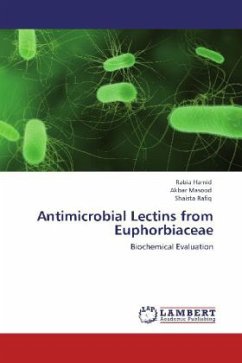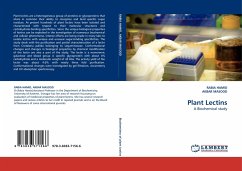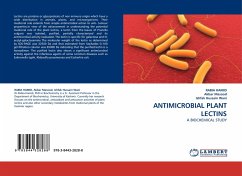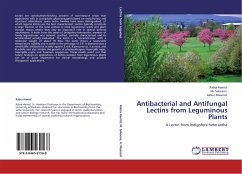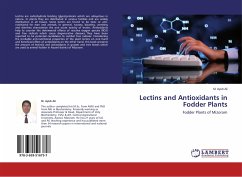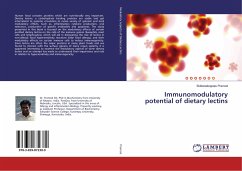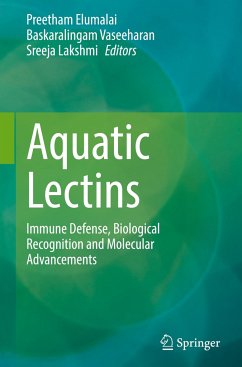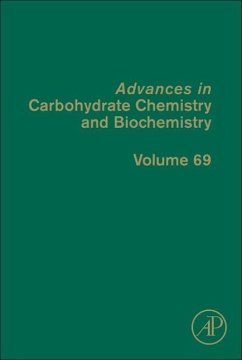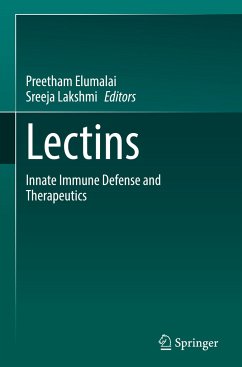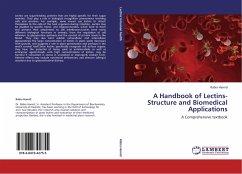
A Handbook of Lectins-Structure and Biomedical Applications
A Comprehensive textbook
Versandkostenfrei!
Versandfertig in 6-10 Tagen
39,99 €
inkl. MwSt.

PAYBACK Punkte
20 °P sammeln!
Lectins are sugar-binding proteins that are highly specific for their sugar moieties. They play a role in biological recognition phenomena involving cells and proteins. For example, some viruses use lectins to attach themselves to the cells of the host organism during infection. Lectins may be disabled by specific mono- and oligosaccharides, which bind to them and prevent their attachment to cell membranes.Lectins serve many different biological functions in animals, from the regulation of cell adhesion to glycoprotein synthesis and the control of protein levels in the blood. They may also bin...
Lectins are sugar-binding proteins that are highly specific for their sugar moieties. They play a role in biological recognition phenomena involving cells and proteins. For example, some viruses use lectins to attach themselves to the cells of the host organism during infection. Lectins may be disabled by specific mono- and oligosaccharides, which bind to them and prevent their attachment to cell membranes.Lectins serve many different biological functions in animals, from the regulation of cell adhesion to glycoprotein synthesis and the control of protein levels in the blood. They may also bind soluble extracellular and intercellular glycoproteins.The large concentration of lectins in plant seeds decreases with growth, and suggests a role in plant germination and perhaps in the seed's survival itself.Since lectins specifically recognize cell surface sugars, they have the potential of being used as antimicrobials as well as anticancer agents.Foods with high concentrations of lectins, may be harmful if consumed in excess in uncooked or improperly cooked form. Adverse effects may include nutritional deficiencies, and immune (allergic) reactions due to gastrointestinal distress.





